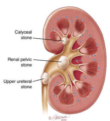The History of Parsley

The name “parsley” comes from two Greek words Petroselinum (petrose) meaning “rock.”, and the other is selenium, which is an ancient name for celery. Literally, parsley means “rock celery.” Rock celery because it thrives on rocks and walls. The ancient Greeks and Rome believed parsley was sacred and also evil, where death and victory run hand in hand. Warriors fed parsley leaves to their horses to give them strength. The Greeks placed it on winning athletes and also on the tombs of the dead. Parsley was closely associated with death, perhaps due to its look-alike “fool’s parsley”, which is poisonous. It was scattered over graves during funerals and planted on those sites as well. The saying “De’eis thai selinon”, or “needs only parsley” was the equivalent of today’s “one foot in the grave”.
A lot of us think that parsley only acts as a garnish for food, making the plate look more presentable and attractive. Some people just toss the leaf away or push them to the side of the plate. Not a lot of people actually eat them along with their meals.
 There are two main types of parsley plants used as herbs in recipes:
There are two main types of parsley plants used as herbs in recipes:
-
-
-
-
-
- Curly-leaf parsley also called French parsley
- Italian, or flat-leaf parsley
-
-
-
-
Flat-leaf Italian parsley is more closely related to the wild parsley species that was first grown in the Mediterranean. Compared to curly parsley, it also has a stronger flavor and is easier to grow.
Some people prefer the curly-leaf variety because of its decorative appearance when it’s used on top of recipes. Both types taste very similar to someone who is not extremely familiar with them, and both offer similar health benefits.
 Parsley can provide much more than a decoration on your plate. Parsley was used medicinally prior to being consumed as a food in the Mediterranean for 2,000 years before it was used for food.
Parsley can provide much more than a decoration on your plate. Parsley was used medicinally prior to being consumed as a food in the Mediterranean for 2,000 years before it was used for food.
![]()

It contains a range of protective vitamins and flavonoid antioxidants that are responsible for many of the disease-fighting parsley benefits being researched today. These antioxidants include luteolin, apigenin, lycopene, beta-carotene, and alpha-carotene.
PARSLEY SUPERSTARS

PHYSIOLOGICAL BENEFITS

Immune Booster
Vitamin C has many different functions.
- Its powerful anti-inflammatory agent and its antioxidants help slow the aging process.
- It perfectly helps to fight with edema, no matter where they occur: on the legs, face or in other places.
- usefulness in conditions such as osteoarthritis and rheumatoid arthritis, and needed for the healthy function of the immune system.
- It may also be helpful in reducing the severity of asthma, osteoarthritis, and rheumatoid arthritis.
- Vitamin C improves iron absorption.
- Vitamin C helps maintain a healthy gut environment, where much of the immune system is actually located
-
-
-
- Pass the leaves and roots of the plant through a meat grinder and add the seeds in a glass bowl.
- Pour boiling water and wait about 7 minutes. After that, tea can be filtered and drunk.
- It is advisable to drink a cup of tea every two hours.
- To improve the taste, you can add lemon and honey.
-
-
Important antioxidant
Vitamin A ~ helps reduce the risk for the development and progression of conditions like atherosclerosis, diabetes, and colon cancer.
It is a nutrient so important to a strong immune system that its nickname is the “anti-infective vitamin.”
Cancer prevention
- C Protecting your cells from damage caused by unstable molecules called free radicals
- This herb is sometimes called a “chemoprotective” plant because it helps protect DNA from damage, stops cell mutation and helps induce apoptosis, or the death of harmful cells.
- Folate is vitally important for cancer-prevention or inhibiting tumors due to high levels of anti-inflammatory compounds. It is therefore important for cancer-prevention areas of the body that contain rapidly dividing cells such as the colon and the cervix.
- Apigenin has been found to
-
- …“inhibit the progestin-dependent synthesis of human breast cancer cells
- …significantly delaying the development of, and decreasing the incidence and multiplicity of mammary tumors,” according to research done in 2013 by the American Association of Cancer.
- Myristicin, limonene, eugenol, and alpha-thujene are powerful oil components that benefit the body’s immune system and help fight cancer neutralizing oxidative stress and fighting off carcinogens.
Heart Health (B, K, C)
- K Promotes strong capillaries and is used for the prevention of spider veins.
- B Reduces blood vessel damage lowering the risk of stroke, heart attack, and atherosclerosis (thickening of artery walls).
- K Just 10 sprigs improves bone health and improves calcium absorption.
- K Proper blood clotting, which can help prevent excessive bleeding.
- C Improves Heart Health
- A Carotenoids (A vitamins) contribute to lower rates of heart disease
- B Folate is needed for heart health – it’s a vital B vitamin that plays a critical role in protecting your heart. Folate in order to convert homocysteine, a type of amino acid found in the blood. Homocysteine is a potentially troublesome molecule that can cause damage to blood vessels when uncontrolled, potentially leading to a heart attack or stroke.
it is important that you do not suddenly begin to eat more foods containing vitamin K, which plays a large role in blood clotting.
Improves Oral Hygiene
Parsley is chock full of chlorophyll, which has antibacterial properties. You have all probably seen a sprig of parsley as a garnish to decorate your plate or on a display of dishes in a restaurant. What you may not know is that eating it after a meal fights oral bacteria that causes bad breath.
Digestive Health
- Parsley works as a natural diuretic.
- Improves digestion of proteins and fats
- Parsley’s high enzyme content contributes to improving overall digestion, and the effective elimination of waste.
- Parsley stimulates digestion and the kidneys and helps eliminate toxins and kidney stones. It relieves water retention, bloating, indigestion, and flatulence (preventing the formation of gas).
- It increases urine flow to remove infection-causing bacteria from the urinary tract.
“Parsley is used for inflammation of the kidneys and bladder, gravel, stones, and urine retention.”
“Parsley is remarkable for its ability to expel watery poisons, excess mucoid matter, [even] flatulence, reducing swollen and enlarged glands.”
According to Dr. John Christopher of the Herbal Legacy Group
- Acts as antiurolithiatic drug through decreasing urinary calcium excretion, increasing urinary pH, dieresis, decreasing urinary protein excretion, and via its nephroprotective activity.”
- It helps your body flush out more toxins such as heavy metals
According to a 2002 review done at the American University of Beirut.
- It prevents the formation of kidney stones, benefiting digestive health because it helps stimulate kidney production of urine and draws excess water out of the abdomen, where it can cause discomfort and indigestion.
- Regular consumption of parsley also speeds up the process of uric acid removal. This is a symptom of arthritis.
- Help relieve water retention
- And eases bloating
- Treats a number of gastrointestinal symptoms and disorders:
-
- including gas
- constipation
- bloating
- indigestion
- nausea
- It helps increase bile production and beneficial gastric juices that are needed for proper enzyme functions involved in food and nutrient absorption.
-
-
-
- Use 30g (or 3 tablespoons full) of parsley leaves per 4 cups of boiling water.
- Let it steep for 10 minutes and sip before meals to prevent bloating, or after to relieve it.
-
-
Wound Healing
An essential amino acid found in parsley is needed to repair damaged tissues. Parsley juice works wonders to speed up wound healing after surgery.
Soothes Irritated Skin:
Rub dried or fresh parsley leaves on irritated skin or insect bites to soothe skin irritation. When dealing with boils, boil parsley leaves in water and apply it on the affected areas for a few hours. It also helps to fade freckles and spots.
Protects Eye and Skin Health(A)
- Carotenoid and beta-carotene boost eye health. These antioxidants protect the retina and cornea from damage as someone ages.
- Helping prevent eye disorders like macular degeneration and cataracts.
- Fights signs of aging on the skin.
- Parsley benefits skin and dental health by fighting off infections and bacteria.
- Protects eyes and skin from UV light damage, and may be able to help prevent skin cancer.
Bone Protecting (Ca, K, D, Mg)
- maintaining bone density
- fights bone breaks and fractures
Balance Hormones(B6)
- for normalizing menstruation
- treating amenorrhea (loss of menstrual cycle)
- decreasing menstrual pain
- important for fertility
- prevents symptoms of PMS
- prevents neural tube defects
- important for a healthy pregnancy
Caution: Parsley is not recommended for pregnant women in large amounts, as it may cause uterine contractions, but used after delivery, it is said to tone the uterus.
Parsley Tea (uses 2 to 4 tablespoons of fresh parsley with 2 cups of water). This tea has been used in natural folk medicine as a remedy for treating gallstones, indigestion, kidney stones, constipation, and edema (bloating). Drinking ginger and parsley tea is also a great way to soothe nausea associated with pregnancy, stomach viruses, etc.
- Chop fresh parsley and tie up in cheesecloth. Place bundle in a teapot with lid
- Bring water to boil in a kettle or heavy saucepan
- Pour boiling water over cheesecloth bundle, cover and let steep for 10 minutes
- Warm 1 tablespoon honey for each cup of tea and serve while hot.
- It is advisable to drink a cup of tea every two hours.
Use 30g (or 3 tablespoons full) of parsley leaves per 4 cups of boiling water. Let it steep for 10 minutes and sip before meals to prevent bloating, or after to relieve it.
Many Christian groups also celebrate Passover. Christians tend to view the brilliant green parsley as symbolizing new life, the life they believe is promised by Jesus’ resurrection. Because of Parsley’s bitterness, it is done in remembrance of the enslaved Jews and the tears they shed.
Thank you so much for taking the time to stop by. It shows your interest in health or at least your curiosity. I am truly enjoying learning more about the powerful benefits of the Herbs and Spices we use in our kitchens. If you enjoyed this post and learning about Parsley, please press the follow button, like it, and share how it helped you. If you know someone who could be helped by this information please pass it on. People are destroyed from a lack of knowledge. (Hosea 4:6) I’d be very grateful if you’d help it spread the word so that more people can live their best life now free and to the fullest.











 Drink rosemary tea on a regular basis to promote circulation.
Drink rosemary tea on a regular basis to promote circulation. Good Oral Hygiene(A, B2, C, Fe, Ca, Mg, P, K)
Good Oral Hygiene(A, B2, C, Fe, Ca, Mg, P, K)

 As the season of spring approaches, one can find asparagus lovers walking along the side of a dirt road in Iowa, looking for wild asparagus growing in the ditches.
As the season of spring approaches, one can find asparagus lovers walking along the side of a dirt road in Iowa, looking for wild asparagus growing in the ditches. A natural diuretic, asparagus can help increase urine production in the body. By expelling water from the body, it reduces the concentration of unnecessary salts and fluids.
A natural diuretic, asparagus can help increase urine production in the body. By expelling water from the body, it reduces the concentration of unnecessary salts and fluids.
 Being rich in vitamin K, asparagus helps lower the risk of coronary calcification and coronary heart disease.
Being rich in vitamin K, asparagus helps lower the risk of coronary calcification and coronary heart disease. Significantly lowers miscarriages or neural tube defects because of folic acid, while chances of low weight, premature delivery, and retardation decrease.
Significantly lowers miscarriages or neural tube defects because of folic acid, while chances of low weight, premature delivery, and retardation decrease. Carcinogens are a substance capable of causing cancer in living tissue.
Carcinogens are a substance capable of causing cancer in living tissue. Depression is becoming more common every day partly because of increased stress and partly because of high homocysteine (amino acid) levels, which impede the pathway to the brain for nutrients and blood cells. This affects production and secretion of some important hormones, such as serotonin, dopamine, and norepinephrine. These hormones make you feel good and keep your spirits high. Besides regulating your mood, these hormones also regulate sleep and appetite, so including asparagus in your diet can help ensure emotional stability.
Depression is becoming more common every day partly because of increased stress and partly because of high homocysteine (amino acid) levels, which impede the pathway to the brain for nutrients and blood cells. This affects production and secretion of some important hormones, such as serotonin, dopamine, and norepinephrine. These hormones make you feel good and keep your spirits high. Besides regulating your mood, these hormones also regulate sleep and appetite, so including asparagus in your diet can help ensure emotional stability.
 Asparagus is excellent for getting rid of acne (even the severe type).
Asparagus is excellent for getting rid of acne (even the severe type).





